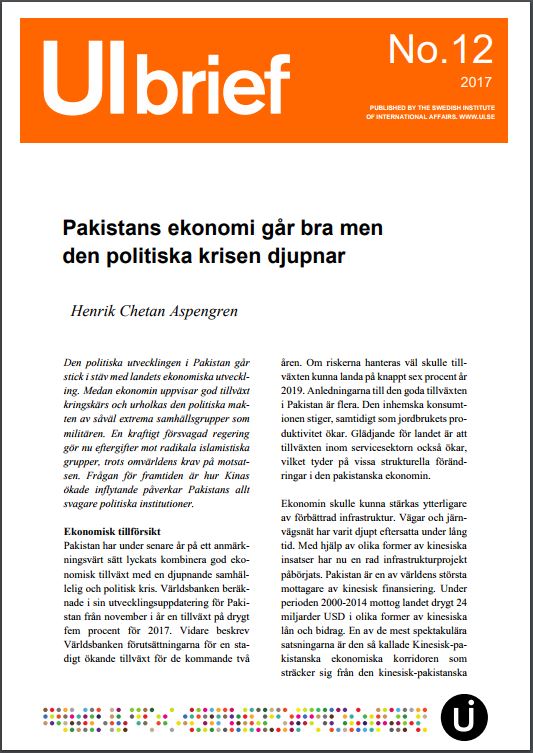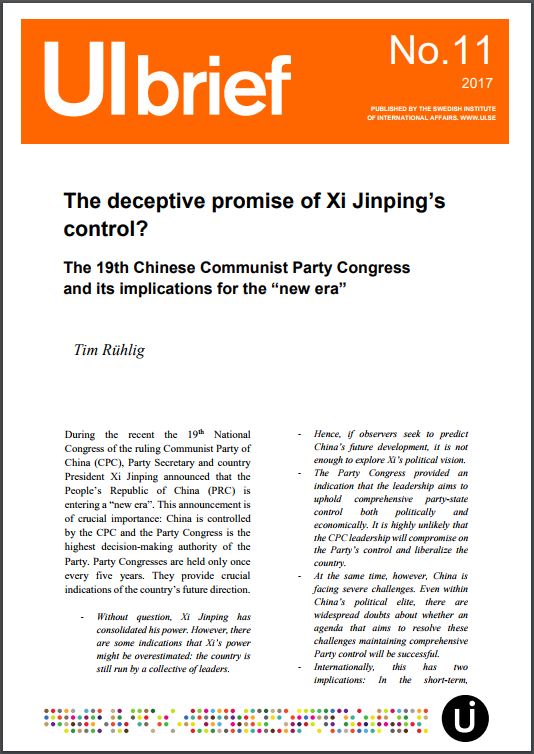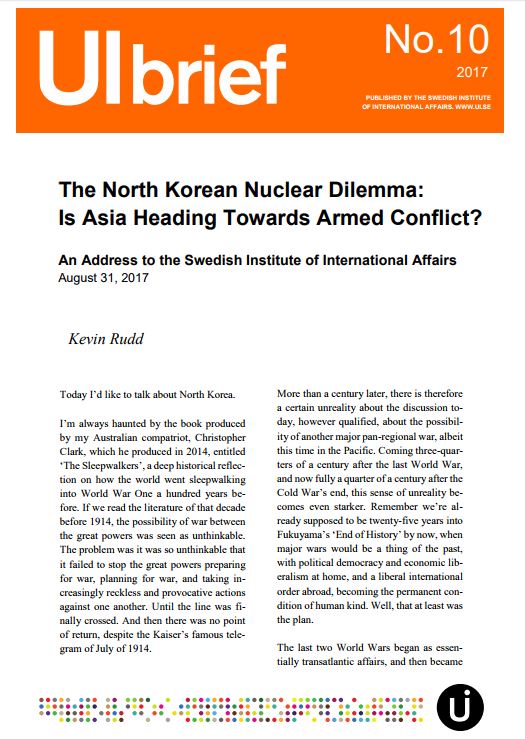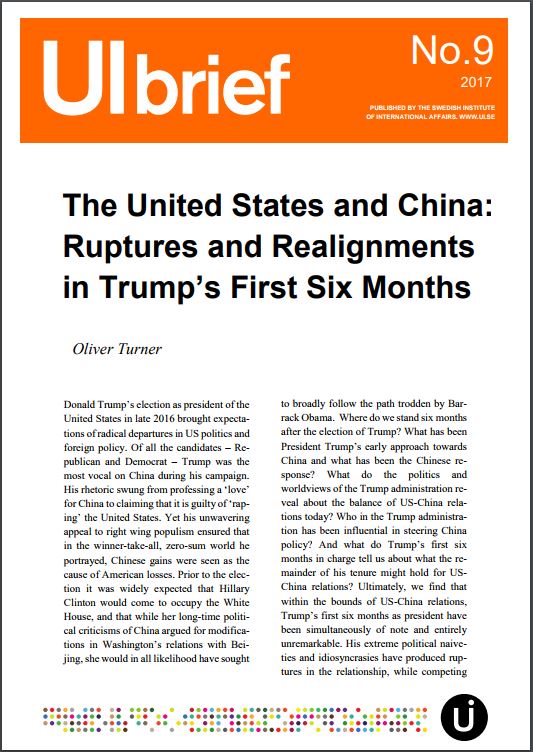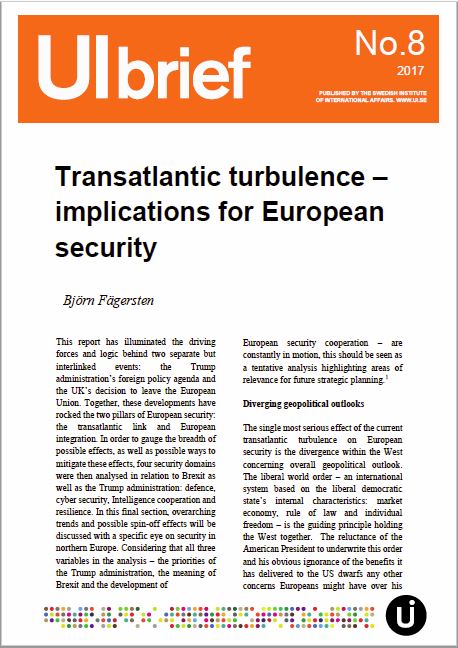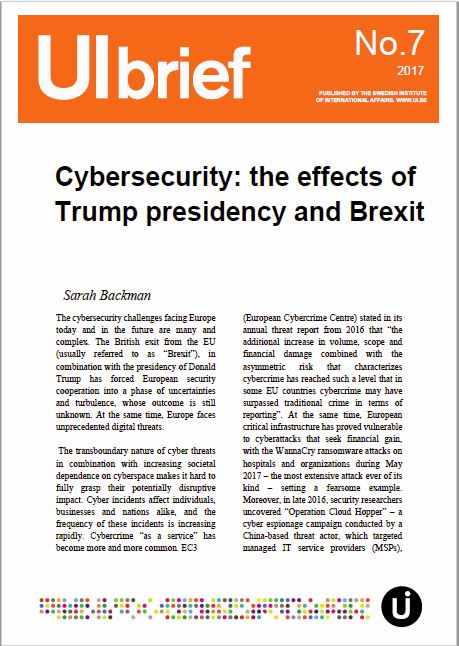Transatlantic turbulence and European security* – Effects of President Trump’s foreign policy agenda and Brexit
The people in one of the European Union’s most powerful member states, the United Kingdom, have chosen to leave the EU and the President of the EU’s most powerful partner, the United States of America, has yet to show any sympathy for European integration. What does this dual shock of transatlantic turbulence – Brexit and President Donald Trump’s foreign policy – mean for European security?
A few years ago, it was suggested that Europe’s political situation could best be characterized as “crisis upon decline”. Crisis in the form of several structural problems that lacked effective common solutions – migration management, debt levels within the Eurozone, and mounting Russian aggressiveness are telling examples – and decline in the sense of other actors and other regions catching up or even overtaking the privileged positions of western states in the world system. The state of “crisis upon decline” was suggested to have a negative impact on Europe’s geopolitical influence.
Authors: Dan S. Hamilton, Claudia Major, Christian Mölling, Björn Fägersten and Sarah Backman.
This edition is an edited collection of UI Briefs. UI Briefs are short commentaries on international issues, events or trends related to UI’s focus areas. UI Briefs do not require adherence to strict academic conventions. While the author is responsible for the text, the relevant programme director and one additional researcher have reviewed each manuscript.
* This analysis has been conducted as part of an independent research project at the Swedish Institute of International Affairs (UI) with the financial support of the Swedish Armed Forces.
